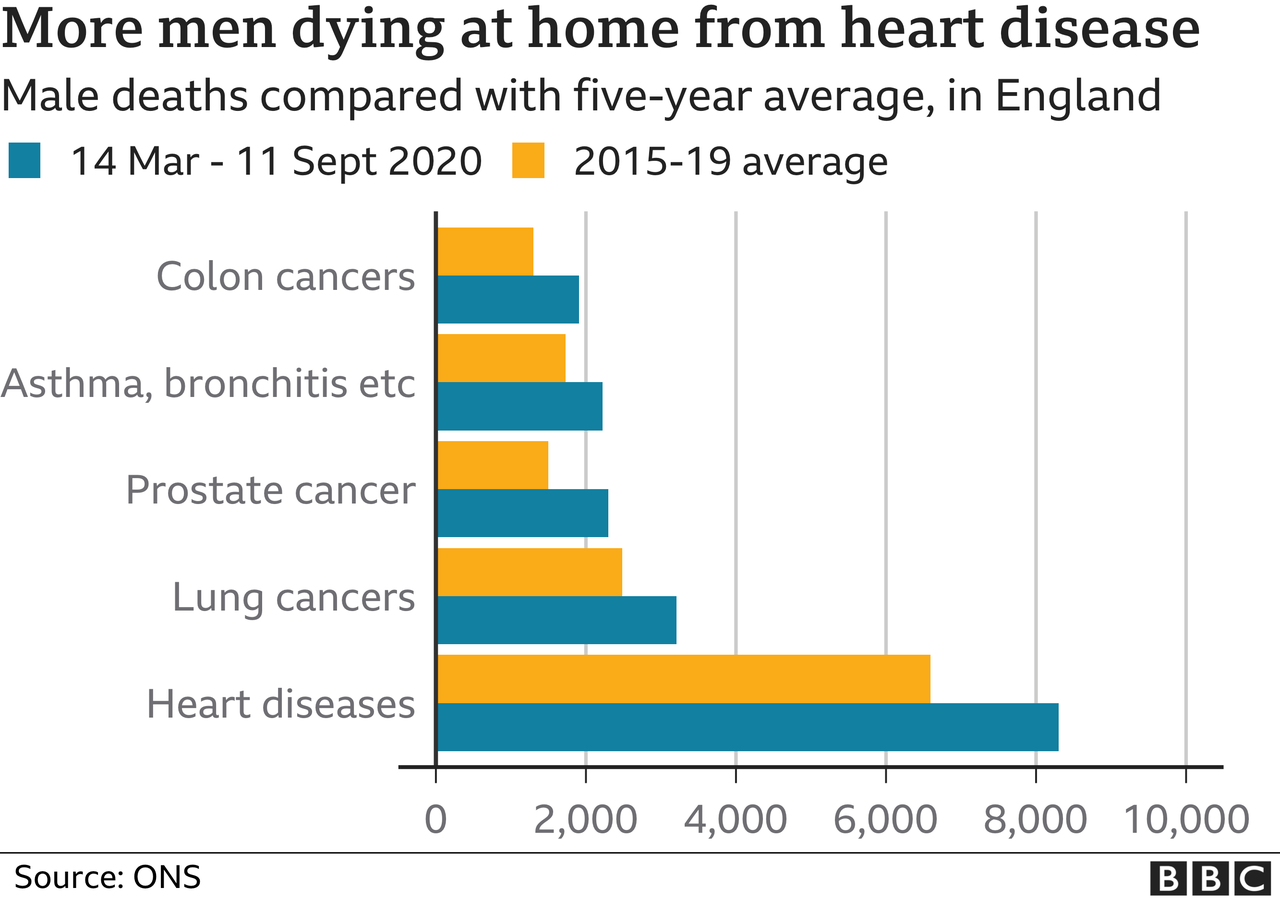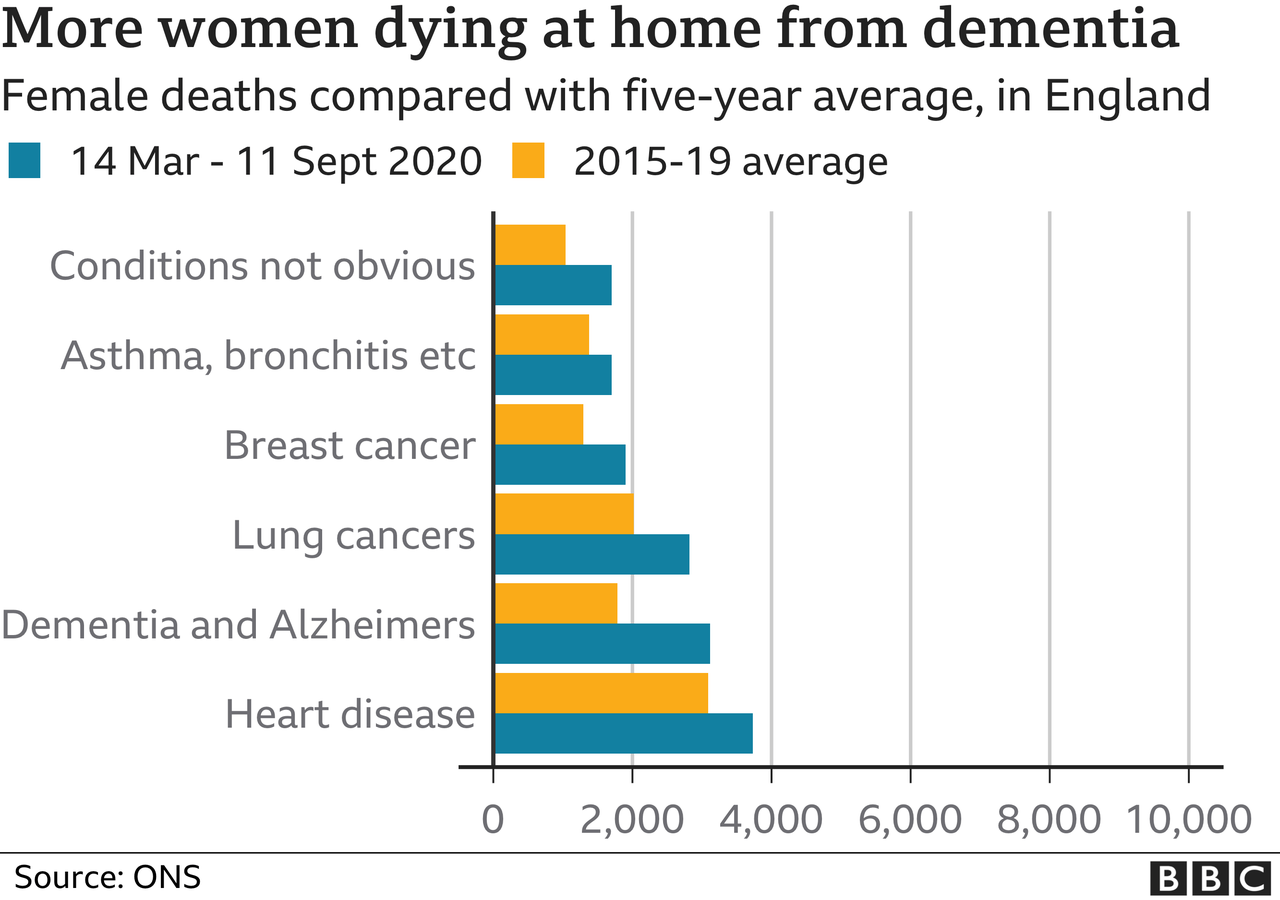UK Health Study Found 26,000 “Extra” Non-COVID Deaths at Home Amid Lockdowns

BBC recently reported some shocking statistics regarding UK health, but which will perhaps come as no surprise to those critics who warned that far-reaching national lockdowns would cause other unseen adverse effects:
Compared with normal years, there have been more deaths at home from a number of major causes, including cancers and respiratory diseases, during the last six months.
The latest analysis published by Britain’s Office for National Statistics found that more than 26,000 “extra” deaths occurred in private homes this year, while simultaneously hospital deaths have been lower than usual.
“More men than normal are dying at home from heart disease in England and Wales, and more women are dying from dementia and Alzheimer’s, figures show,” the report says.
The figures had been issued just ahead of European officials in Germany, France, and Italy contemplating ‘severe’ extended measures that could last as long as four to five months, as Germany is now said to be mulling.
The BBC report further cited Alzheimer’s charity groups as lamenting the “heartbreaking” and devastating hidden adverse impact of both stay-at-home orders and social distancing measures, particularly on elderly men.
Deaths attributable to dementia and Alzheimer’s disease at home are on a major upward trajectory while being down in hospitals, strongly suggesting that more people with life-threatening but treatable diseases are simply avoiding professional medical services for fear of COVID-19 or possibly on fear of violating social distancing measures or travel bans.
The report found that hospital deaths that were dementia-related were down by 40% in England and 25% in Wales.

The UK Office for National Statistics further found that heart disease is wreaking havoc among men at a moment all eyes are on the coronavirus surge:
Between March and September 2020, there were 24,387 more deaths in England than expected in private homes, and 1,644 in Wales. The large majority did not involve Covid-19.
Of these, an extra 1,705 men died from heart disease at home in England – 25% more than normal.
In Wales there was a similar rise in men dying from heart disease at home, of 22.7%.
And again simultaneously deaths in hospitals from such significant conditions not related to coronavirus are noticeably down.

England’s current lockdown measures in place since the start this month through December 2nd include the following:
- Restaurants, pubs and bars will close, except for takeaways and deliveries.
- All leisure and entertainment venues and most non-essential stores will shut.
- The public will be asked to work from home if possible and domestic travel, except for essential purposes, will be frowned upon.
- Schools, universities and colleges will remain open, along with the construction and manufacturing sector.
- Different households will be banned from mixing inside homes.
- People will only be able to leave home for a few reasons including exercise.
- Courts and Parliament will remain open.
- Religious services will also be stopped.
- International travel, apart from for business purposes, must also be put on hold.
- English Premier League matches will continue to be played.
The measures were put in place despite the ONS figures having been available since mid and late October, and showed soaring non-COVID deaths going back to April and May, which was at the height of the UK epidemic.
Despite the hard data showing the rapid rise in potentially treatable diseases that led to non-COVID deaths, leaders in Europe on the whole seem committed to reimposing blanket coronavirus restrictions and lockdowns, which currently includes shuttering pubs, restaurants and night venues, but in most places has stopped short of closing down schools.
*
Note to readers: please click the share buttons above or below. Forward this article to your email lists. Crosspost on your blog site, internet forums. etc.
*** This article has been archived for your research. The original version from Global Research can be found here ***


